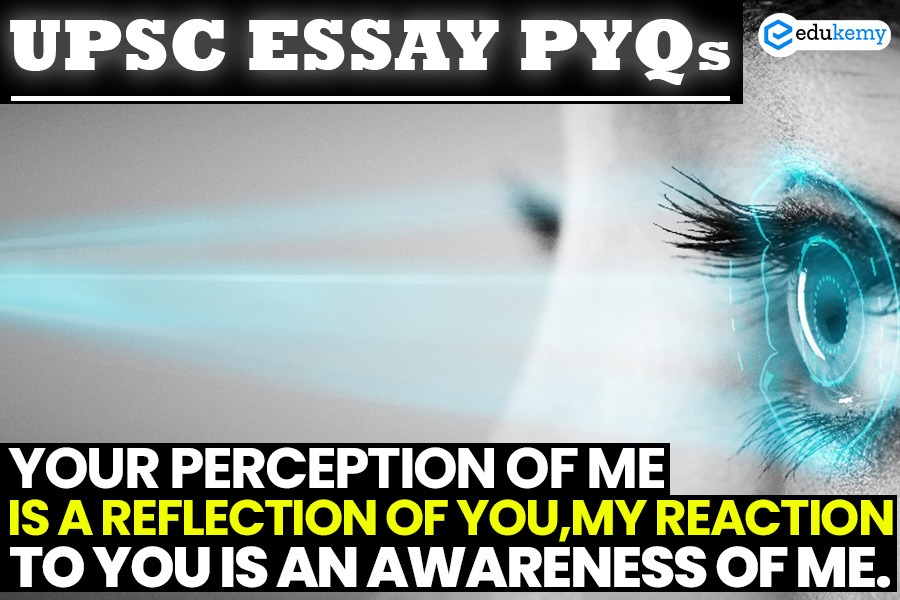1.7K

Explore the UPSC Essay PYQ 2021 on self-perception and relationships, highlighting identity, awareness, and interpersonal dynamics.
Contents
Essay Key
| Component | Details |
|---|---|
| Essay Topic | Self-Perception and Reflection in Interpersonal Relationships |
| Paraphrase | This essay explores how a person’s self-image affects their relationships with others and reflects their understanding of their own identity. |
| Intent of the Essay | To explore the mutual impact of self-perception and interpersonal relationships, emphasizing how self-awareness shapes meaningful connections. |
| Keywords | Self-Perception, Interpersonal Relationships, Awareness, Reflection |
Key Arguments
1. Understanding Self-Perception
- An individual’s self-perception shapes how they engage with others.
- It serves as the lens through which they interpret and build relationships.
- Evidence/Data: Psychological research shows that people with high self-esteem are more likely to form healthy and positive relationships.
2. Seeing Ourselves in Others
- Our perception of others often reflects our inner emotions and beliefs.
- This two-way influence plays a crucial role in interpersonal dynamics.
- Evidence/Data: Social psychologists observe that people often project their fears or strengths onto others, shaping their interactions accordingly.
3. Awareness and Emotional Responses
- Our reactions, though seemingly instinctive, are rooted in how self-aware we are.
- Recognizing one’s emotions and beliefs leads to more genuine responses.
- Evidence/Data: Emotional intelligence studies emphasize that self-awareness is key to maintaining effective relationships.
4. The Impact of Feedback on Self-Perception
- Interpersonal feedback plays a vital role in shaping how we see ourselves.
- This ongoing exchange can lead to personal development or stagnation.
- Evidence/Data: Research indicates that constructive feedback, when accepted positively, contributes significantly to growth.
5. Building Identity Through Relationships
- Our interactions with others strongly influence our identity formation.
- Relationships serve as reflective surfaces that reveal personal values and beliefs.
- Evidence/Data: Erikson’s psychosocial theory explains that identity evolves through meaningful social connections.
Case Studies/Examples
| Case Study | Key Insights | Relevance |
|---|---|---|
| Impact of Self-Esteem on Relationships | Higher self-esteem correlates with healthier relationships and positive interactions. | Demonstrates the influence of self-perception on behavior towards others. |
| Social Projection in Work Environments | Employees often project their fears or strengths onto colleagues, affecting team dynamics. | Highlights the reflection of self in professional relationships. |
| Role of Emotional Intelligence in Leadership | Leaders with high emotional intelligence positively influence team morale and performance. | Shows the importance of self-awareness in effective leadership and group interactions. |

Additional Tips
- Include psychological frameworks like Maslow’s Hierarchy of Needs to illustrate how self-awareness connects with social behavior.
- Highlight how understanding self-perception can support personal growth and improve conflict resolution strategies.
- Share real-life examples from various settings—such as friendships, family, or workplaces—to make the discussion more relatable.
- Examine how different cultures view self-perception and interpersonal dynamics, as these interpretations often differ widely.

